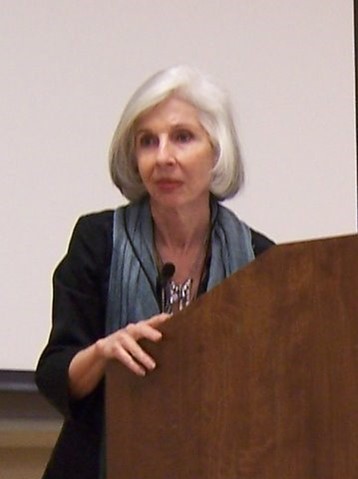
Doris Brothers, Ph.D. is a co-founder and faculty member of the Training and Research in Intersubjective Self Psychology Foundation (TRISP). She was co-editor with Roger Frie of Psychoanalysis, Self and Context from 2015-2019 and is an associate editor of Psychoanalytic Inquiry. She has served on the executive and advisory boards and council of the International Association of Psychoanalytic Self Psychology (IAPSP). Doris has published many journal articles and book chapters as well as four books. Her latest book, written with Jon Sletvold is entitled A New Vision of Psychoanalytic Theory, Practice and Supervision: TALKING BODIES. Her earlier books are: Toward a Psychology of Uncertainty: Trauma-Centered Psychoanalysis (2008), Falling Backwards: An Exploration of Trust and Self-Experience (1995), and with Richard Ulman, The Shattered Self: A Psychoanalytic Study of Trauma (1988). She has presented her work internationally and leads supervision/study groups with Jon Sletvold. She sees patients in private practice in New York and Oslo.
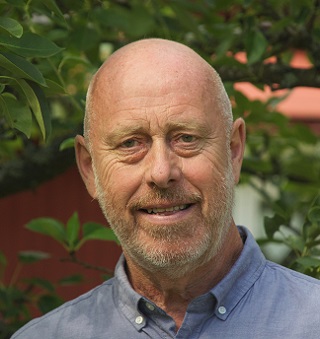
Jon Sletvold, Psy.D. is founding board director and faculty member of the Norwegian Character Analytic Institute. He has written articles and book chapters on embodiment in psychoanalytic theory, practice, and training. He is the editor of four books and the author of The Embodied Analyst: From Freud and Reich to Relationality, the Gradiva Award winning book of 2015. In 2019 he wrote From Muscular Armor to Bodies in Dialogue with Per Harbitz. His latest book, written with Doris Brothers is entitled A New Vision of Psychoanalytic Theory, Practice and Supervision: TALKING BODIES. He has presented his work internationally and co-leads online supervision/study groups on embodiment in Europe, North America and China with Doris Brothers. He practices in Oslo and New York.
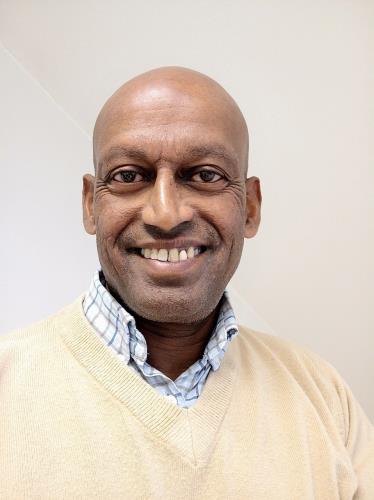
Udesh Anda is a clinical psychologist, a specialist in child and adolescent psychology, and a clinical society psychologist. He has worked in both the public and private sectors for over 30 years. Using a psychodynamic perspective and approach, he has worked as as clinical practitioner for children and adolescents with emotional difficulties for more than 10 years. Since he is originally from Sri Lanka, he offers education and counselling on minority issues. His special interest is on variables that are often unspoken, yet sensitive for the people of minority origin.
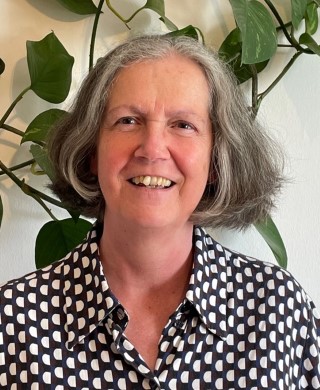
Julianne Appel-Opper is a psychologist, psychotherapist, supervisor and trainer with 35 years of clinical experience. She offers online therapy and supervision internationally from her private practice in Berlin. Her approach of ‘Relational Living Body Psychotherapy’ focuses on interbodily communication and ways of developing embodied interventions. She has presented her work in articles, book chapters, interviews, invited seminars/webinars and lectures. She has developed and offered international training programs since 2005. Her publications include: “English smiles, Italian shoulders and a German therapist”. (International Body Psychotherapy Journal, 2019), “Relational Living Body Psychotherapy: From physical resonances to embodied interventions or experiments” (USA Body Psychotherapy Journal, 2010) and “Two living bodies online” will be published in 2024). Julianne is an Editorial Board Member of the European Journal for Qualitative Research in Psychotherapy, a founding member of IG-FEST, International Gestalt Therapy Study Group on Field-Emergent Self and Therapy. Her website is: www.thelivingbody.net
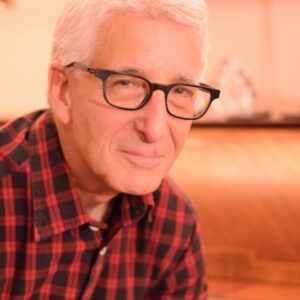
Scott Baum, Ph.D. ABPP is a clinical psychologist and bioenergetic therapist practicing in NYC. Currently on the faculty of the NY, Israel, and Swiss bioenergetic societies, and Adjunct Full Professor of Psychology in the Psy.D. program at Pace University. Scott has been involved in Reichian and related psychotherapeutic approaches since the 1960’s and has written extensively from a somatopsychic perspective about psychotherapy and related subjects.
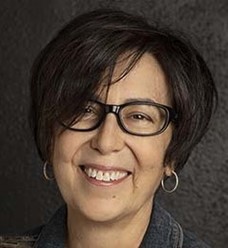
Stacy Berlin, Psy.D., Psy.D. is a licensed psychologist and psychoanalyst in Studio City, CA. She is on the Board of Directors for the International Forum for Psychoanalytic Education, a Guest Editor for the journal Psychoanalytic Inquiry, an Associate Editor for the journal Psychoanalysis Self and Context, and an instructor at the Institute of Contemporary Psychoanalysis. In her professional practice, she takes an egalitarian and contextualist approach within a safe relational framework, integrating creativity, play, and humor.
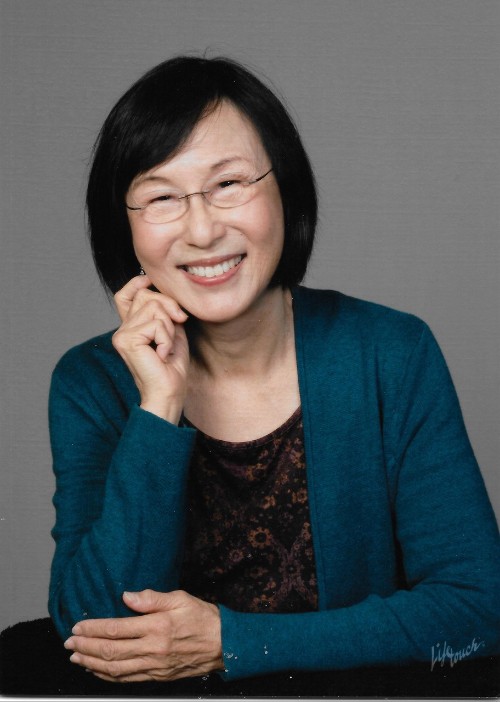
Claire Bien, MEd, is a research associate at the Yale University Program for Recovery and Community Health; mental health advocate and educator; and author of a memoir, Hearing Voices, Living Fully: Living with the Voices in My Head. She is a board member and immediate past president of the U.S. chapter of the International Society for Psychological and Social Approaches to Psychosis (ISPS-US); as well as a board member of the Hearing Voices Network (HVN)-USA. Claire speaks widely about her experiences with psychosis and her understandings of the nature and processes of her recovery, which was greatly helped by early exposure to psychoanalytically informed, psychodynamic therapy. Her paper, “My Body, My Psyche, My Self: An Empath’s Reflections on Being and Becoming in the World,” will be published in 2025 as part of a special issue on Madness of the journal Psychoanalytic Inquiry, edited by Daniel Posner, MD.
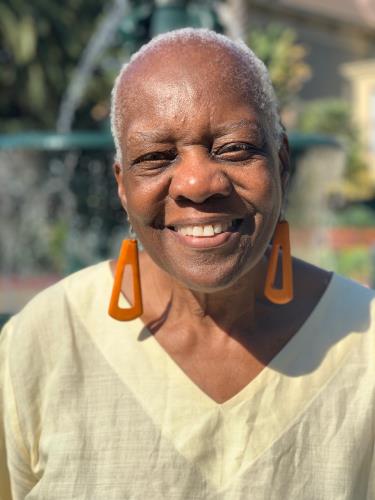
Dr. Fanny Brewster, is a Jungian analyst and Core Faculty member at Pacifica Graduate Institute. She completed her analytical training at the C.G. Jung Institute of New York and is a New York State Licensed Psychoanalyst and Certified School Psychologist. She holds an M.F.A. degree in Creative Nonfiction from Goucher College. Dr. Brewster is the author of several books, including The Racial Complex: A Jungian Perspective on Culture and Race, Archetypal Grief: Slavery’s Legacy of Intergenerational Child Loss, African Americans and Jungian Psychology: Leaving the Shadows and Race and the Unconscious: An Africanist Depth Psychology Perspective on Dreaming. (All Routledge)
Dr. Brewster is the recipient of the Fay Lectures honorarium of 2023 from the C.G. Jung Society of Houston.
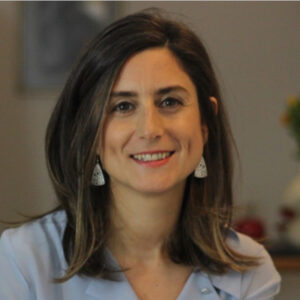
Zeynep Catay, Ph.D. is a Clinical Psychologist in private practice in New York City working with adults and children. She is also a Dance/Movement Therapist and practitioner of somatic experiencing method. She was a faculty member at the Psychology Department of Istanbul Bilgi University between the years of 2005 and 2019. She is currently a part-time instructor and clinical supervisor at the Clinical Psychology PhD. program at the New School for Social Research. She has been a visiting scholar at the Center for Attachment Research at the New School and is currently directing a study in collaboration with the Child Psychotherapy Process Research Lab at Istanbul Bilgi University on therapist’s ability to coordinate their nonverbal communication in child psychotherapy. Her current research and writing interests focus on nonverbal bodily dynamics and embodiment in psychotherapy and somatic countertransference. She is also a candidate at the NYU post-doctoral program for psychoanalysis.
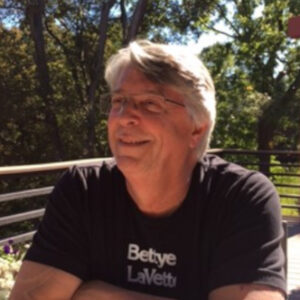
William F. Cornell, M.A., maintains an independent private practice of psychotherapy and consultation in Pittsburgh, PA. He teaches internationally with a primary focus on working with somatic processes and sexuality. Bill is a founding faculty member of the recently inaugurated Western Pennsylvania Community for Psychoanalytic Therapies. He is the author of Explorations in Transactional Analysis: The Meech Lake Papers, Somatic Experience in Psychoanalysis and Psychotherapy: In the expressive language of the living, Self-Examination in Psychoanalysis and Psychotherapy: Countertransference and subjectivity in clinical practice, At the Interface of Transactional Analysis, Psychoanalysis, and Body Psychotherapy: Theoretical and clinical perspectives, and Une Vie Pour Etre Soi. He is a co-author and editor of Into TA: A comprehensive textbook, which have been translated into several languages. Bill has published numerous articles and book chapters, many of which have been translated into French, Italian, German, Portuguese, and Chinese. Bill edited and introduced books by James T. McLaughlin, Warren Poland, Wilma Bucci, and Maurice Apprey. An editor of the Transactional Analysis Journal for fifteen years, he is now the Editor of the Routledge book series, “Innovations in Transactional Analysis.” Bill is a recipient of the Eric Berne Memorial Award and the European Association for Transactional Analysis Gold Medal, in recognition of his writing.
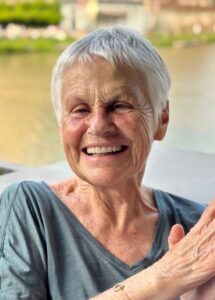
Françoise Davoine, Ph.D. has completed studies in classical literature. She has a Ph.D. in sociology and is a professor a Sociology at the Ecole des Hautes Etudes en Sciences Sociales, where, for 40 years, she has lead a weekly seminar with Jean Max Gaudillière entitled ” Madness and the Social Link.”She has been a psychoanalyst in a public psychiatric hospital and outdoor consultation and in private practice in Paris for 30 years She was a member of Lacan’s “Ecole Freudienne” until Lacan’s death in 1981. She is a member of ISPS founded in 1954 by Gaetano Benedetti. She is an Erikson Scholar in the Erikson Institute at Austen Riggs Center. Her books include History beyond Trauma (Other Press with Max Gaudillière). Those published by Routledge are: Mother Folly, Fighting Melancholy: Don Quixote’s teaching.; A Word to the Wise (on Don Quixote’s second book);Jean Max Gaudillière’s Seminars (2 volumes); Pandemics, Wars, Traumas and Literature; Shandean Psychoanalysis: Madness and traumas in Tristram Shandy-and Wittgenstein’s Folly.
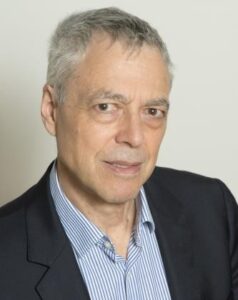
George Downing, Ph.D, is an American psychologist in private practice in Paris. He frequently supervises psychiatric and other clinical teams, including at the University of Heidelberg, LMU University in Munich, and the University of Saarbrucken, Germany; Biccoca University in Milan and the University of Bologna, Italy; and the University of Basel, Switzerland. A major concern for him is how increased attention to the body can enhance and deepen the psychotherapy process.
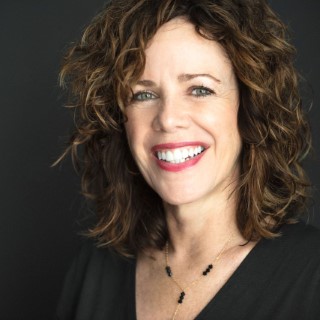
Heather Ferguson, LCSW, is a faculty member and supervisor at the Institute for the Psychoanalytic Study of Subjectivity, the National Institute for the Psychotherapies, and the Massachusetts Institute for Psychoanalysis. As a certified hypnotherapist and practitioner of EMDR, she incorporates embodied techniques into her psychoanalytic practice. She writes and lectures about eating disorder treatment, the role of intergenerational transmission of trauma, and the use of embodied techniques to deepen psychotherapeutic engagement. She has chapters in “Ghosts in the Consulting Room: Echoes of Trauma in Psychoanalysis” (edited by Harris, Kalb, and Klebanoff) and “Art, Creativity, and Psychoanalysis: Perspectives from Analyst-Artists” (edited by Hagman). She maintains a private practice in New York City.
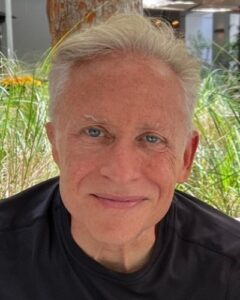
Jack Foehl, Ph.D. is Past-President of the Boston Psychoanalytic Society & Institute, where he is Training and Supervising Analyst and is Supervisor and Faculty Member at the Massachusetts Institute for Psychoanalysis. He is Clinical Associate Professor at the NYU Postdoctoral Program in Psychotherapy and Psychoanalysis and is Lecturer at Harvard Medical School. Jack is Joint Editor-in-Chief of Psychoanalytic Dialogues and a past editorial board member of the International Journal of Psychoanalysis. Jack’s recent publications include: Playing with Winnicott: Squiggling Through Therapeutic Consultations and The Slap: Playing with Reality in Discussing Trauma in 2022, and Lived Depth: A Phenomenology of Psychoanalytic Process and Identity in 2020. He integrates Merleau-Ponty’s work on the lived body into a framework for teaching and experiencing psychoanalytic process.
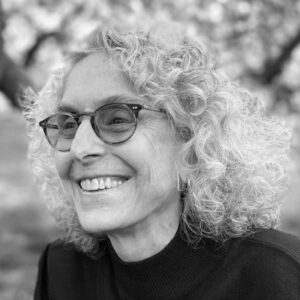
Ruella Frank, PhD, Founder and director of the Center for Somatic Studies, faculty at the New York Institute for Gestalt Therapy, adjunct faculty at Gestalt Institute of Toronto, and guest faculty at Gestalt Associates for Psychotherapy. Ruella teaches throughout the United States, Europe, Eurasia, Mexico, South America and Canada. She is author of Body of Awareness: A Somatic and Developmental Approach to Psychotherapy, (2001, GestaltPress, available in 4 languages), co-author of The First Year and the Rest of Your Life: Movement, Development and Psychotherapeutic Change (2010, Routledge Press, available in 3 languages), and author of The Bodily Roots of Experience in Psychotherapy (2022, Routledge Press, available in 7 languages). Her video Introduction to Developmental Somatic Psychotherapy, is available in three languages. www.somaticstudies.com
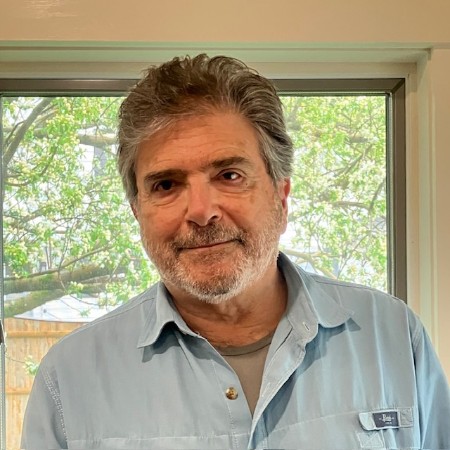
Mark Freeman, Professor Emeritus of Psychology at the College of the Holy Cross, is currently Research Professor in the Lynch School of Education and Human Development as well as Senior Fellow at the Center for Psychological Humanities and Ethics at Boston College. Author of numerous works, including Rewriting the Self: History, Memory, Narrative; Hindsight: The Promise and Peril of Looking Backward; The Priority of the Other: Thinking and Living Beyond the Self; Do I Look at You with Love? Reimagining the Story of Dementia; and, most recently, Toward the Psychological Humanities: A Modest Manifesto for the Future of Psychology, he also serves as Editor for the Oxford University Press series “Explorations in Narrative Psychology.”
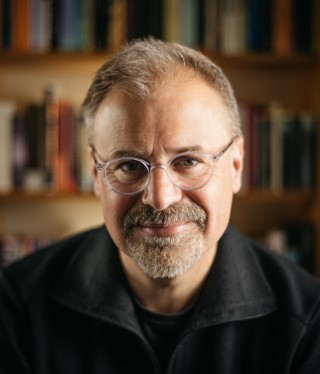
Roger Frie is Professor of Education at Simon Fraser University and Affiliate Professor of Psychiatry at University of British Columbia in Vancouver, and faculty and supervisor at the William Alanson White Institute of Psychiatry, Psychoanalysis and Psychology and 2023-2024 Visiting Scholar in Sociology at the CUNY Graduate Center in New York. He was the 2022 Visiting Professor of Psychoanalysis at Kyoto University and 2021 DAAD Visiting Professor at the International Psychoanalytic University in Berlin. He writes and lectures widely on the themes of historical trauma, memory and social responsibility. His newest book, to be published this year with Oxford University Press, is called Edge of Catastrophe: Erich Fromm, Fascism and the Holocaust and his most recent edited book (with Pascal Sauvayre) is Culture, Politics and Race in the Making of Interpersonal Psychoanalysis: Breaking Boundaries. He is author of, among other books, Not in My Family: German Memory and Responsibility after the Holocaust (OUP, 2017).
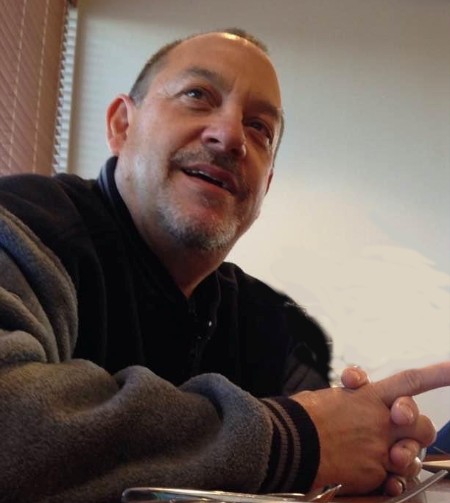
Daniel Goldin, MFT, Psy.D. serves as editor of Psychoanalytic Inquiry. He has written numerous articles for Psychoanalytic Dialogues, Psychoanalysis: Self and context and Psychoanalytic Inquiry. His book Toward a Pragmatic Psychoanalysis: Bringing Nature, Nurture and Culture Together again will be published by Routledge this year. He and Daniel Posner create and host the popular podcast “The Conversation,” which confronts important issues of the day in a psychoanalytic vein.
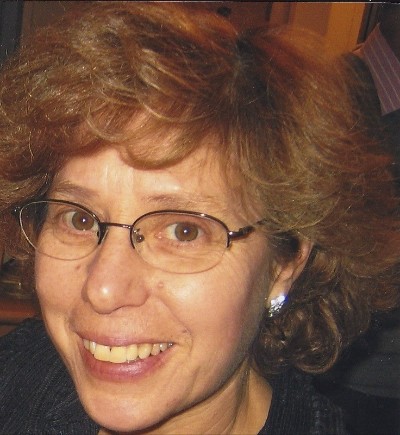
Dr Sue Grand is faculty and supervisor at the NYU Postdoctoral Program in Psychoanalysis; faculty, the Mitchell Center for Relational Psychoanalysis; faculty, the National Institute for the Psychotherapies; visiting scholar at the Psychoanalytic Institute of Northern California and the Chicago Institute for Psychoanalysis. She is the author of The Reproduction of Evil: A Clinical and Cultural Perspective and The Hero in the Mirror: From Fear to Fortitude. She is the co-author of Trans-generational Transmission: A Contemporary Perspective, and has co-edited multiple books on trans-generational transmission and on relational theory. She teaches in Ukraine and in Israel. She is on the boards of Psychoanalytic Dialogues and Psychoanalysis, Culture and Society. Her area of interest is political/social/psychic violence and trauma. She is in private practice in NYC and in Teaneck New Jersey.
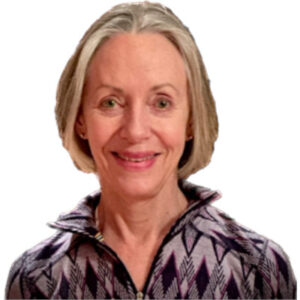
Caron Harrang, LICSW, FIPA, BCPsa is board certified psychoanalyst with a fulltime private practice in Seattle, Washington. She is an IPA training and supervising psychoanalyst with Northwestern Psychoanalytic Society and Institute. Selected publications include “Painting Poppies: on the relationship between concrete and metaphorical thinking” in A. Frosch (Ed.), Absolute Truth and Unbearable Psychic Pain (2012), Psychic skin and narcissistic rage: Reflections on Almodóvar’s The Skin I Live In. International Journal of Psychoanalysis (2012), From Reverie to Interpretation: Transforming Thought into the Action of Psychoanalysis, D. Blue & C. Harrang (Eds.) (2016), “River to rapids: Speaking to the body in terms the body can understand” in C. Harrang, D. Tillotson, & N. Winters (Eds.), Body as Psychoanalytic Object: Clinical Applications from Winnicott to Bion and Beyond (2021), and “Possibility Clouds Arising from a Close Reading of Civitarese and Berrini’s ‘On Using Bion’s Concepts of Point, Line, and Linking in the Analysis of a 6-Year-Old Child'” (2022).
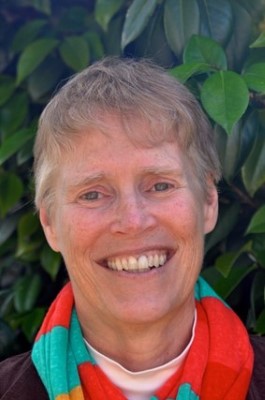
Lynne Jacobs, Ph.D., has long been interested in the relational dimension of psychotherapy, and in integrating humanistic theories with contemporary psychoanalytic theories. She is also interested in what it means to practice as a white therapist in culturally diverse environments. Both a gestalt therapist and a psychoanalyst, she is a co-founder of PGI and faculty analyst at the Institute of Contemporary Psychoanalysis (ICP) in Los Angeles. She teaches at ICP, and teaches gestalt therapists locally, nationally, and internationally. She has published two books (with Rich Hycner) as well as numerous articles in both gestalt and psychoanalytic journals.

Guilaine Kinouani is an award-winning writer, psychologist, group analyst, and thinker. She is the founder of Race Reflections. She taught critical psychology, social sciences and black studies at Syracuse before her PhD at Birkbeck. Her first book Living While Black (2021) exposes the impact of racism on black minds and bodies. Her second bookWhite Minds (2023) is a psychosocial exploration of the quotidian workings of whiteness. In her upcoming co-edited collection: Creative Disruption: Psychosocial scholarship as praxis (2025), contributors explore power, knowledge, memory, embodiment and the of potential of multidisciplinary approaches in fostering epistemic disruption. Guilaine’s thesis examines whiteness and the afterlives of colonialism and enslavement in the clinic using Afro-analytics, a frame she is developing to rethink racial trauma, inheritance, transmission and associated issues of communication and embodiment within the black diaspora.
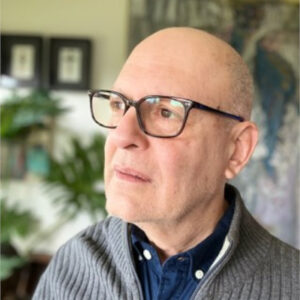
Steven H. Knoblauch Ph.D. is Clinical Adjunct Associate Professor at the New York University Postdoctoral Program in Psychotherapy and Psychoanalysis where he is also a Clinical Consultant. He is also faculty and supervisor at The Institute for the Psychoanalytic Study of Subjectivity in New York City. He is author of The Musical Edge of Therapeutic Dialogue (2000), Bodies and Social Rhythms: Navigating Unconscious Vulnerability and Emotional Fluidity (2021) and coauthor with Beebe, Rustin and Sorter of Forms of Intersubjectivity in Infant Research and Adult Treatment (2005). He often uses his cross cultural experiences as a musician studying and playing jazz, Brasilian music, rock and blues in the US and abroad, with attention to rhythms and prosody shaping social interaction to inform his clinical teaching, supervision and practice.
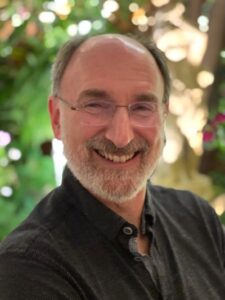
David Levit, Ph.D., ABPP, SEP is a Diplomate in Psychoanalysis and in Clinical Psychology. He is a Fellow at the American Board and Academy of Psychoanalysis and a Fellow at the American Academy of Clinical Psychology. He is an SEP (certified Somatic Experiencing Practitioner). His current faculty positions are: Faculty and Supervising Psychoanalyst, Massachusetts Institute for Psychoanalysis (MIP); Co-founder, Chair, and Faculty, MIP Postgraduate Fellowship Program-West; Instructor in Psychiatry, University of Massachusetts Medical School. He is former Associate Clinical Professor in Psychiatry, Tufts Medical School, and former Adjunct Associate Professor, Smith College School for Social Work. He has written about the interweaving of Somatic Experiencing into psychoanalytic treatment, and has presented extensively on this subject regionally, nationally and internationally. He is in private practice in Amherst, MA, where he provides individual psychotherapy and psychoanalysis for adults and consultation for colleagues.
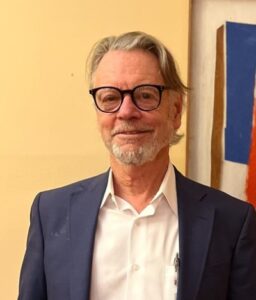
Henry Markman is a Training & Supervising Analyst and Co-chair of Dialogues in Contemporary Psychoanalysis at San Francisco Center for Psychoanalysis. He is on the editorial board of the Journal of the Amercian Psychoanalytic Association . In 2021 he published the book, Creative Engagement in Psychoanalytic Practice by Routledge. Recent publications include: “A Pragmatic Approach to Bion’s Late Work. (JAPA 2015) ; “Presence, Mourning, Beauty: Elements of Analytic Process,” (JAPA 2017); The Good, the Bad, The Ugly, and the Dead: A Typology of Analytic Fields,” (fort da 2018); Accompaniment in Jazz and Psychoanalysis,” (Psychoanalytic Dialogues 2020); “Embodied Attunement and Participation” (JAPA 2020), and “One sided analysis is no longer possible: the relevance of “mutual analysis” in our current world”. (fort da 2021). He has appeared on the IPA podcast “Off the Couch” entitled: An Analyst’s Journey to Authenticity and Presence, and the podcast “New Books in Psychoanalysis.
Henry Markman’s interests include modes of therapeutic action, embodied communication and the relevance of music in psychoanalysis, aesthetic experience, the emotional work of the analyst in the clinical encounter, and the emotional developmental of a therapist. He is currently working on a manuscript entitled “Five Un-easy Pieces: five psychoanalytic articles that changed my mind” and a manuscript for beginning therapists, entitled “Being an analytic therapist: conversations with therapists starting out”. His clinical work and writing draws from Bion, Ferenczi, Balint, Winnicott, the American Relational Group, and Latin American field and link theorists. He is in private practice in Berkeley, where he consults and leads study groups.
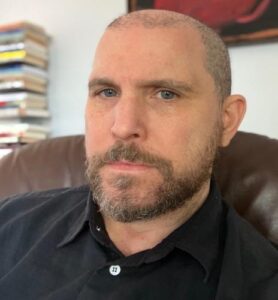
Daniel S. Posner, M.D. is Assistant Clinical Professor of Psychiatry at the Icahn School of Medicine at Mt. Sinai, where he teaches and supervises psychiatry residents in psychodynamic therapy. His writing explores a range of topics through the multiple lenses of psychoanalysis, enactive phenomenology, epistemic justice and infancy research. He has published work in the Journal of Autism and Developmental Disorders, Psychoanalysis, Self and Context and Psychoanalytic Inquiry, where he is an associate editor. He is also the co-host with Daniel Goldin of “The Conversation”– the podcast of Psychoanalytic Inquiry.
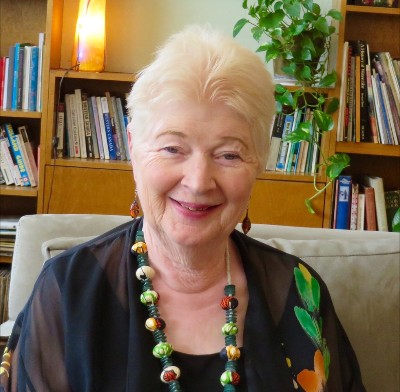
Lynn Preston, MA, MS, LP, is a New York City-based relational psychoanalyst and supervisor. She is the founding director of the Community Empowerment Project and Help for Helpers, an online covid-inspired international support group for therapists. She has written on the subjects of implicit experience and the use of the analyst’s subjectivity. She has a special interest in applying self-psychological principles to groups and communities.
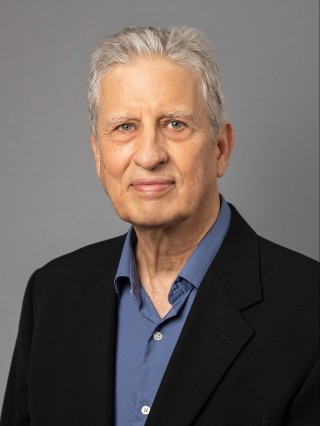
Louis Sass, Ph.D., is Distinguished Professor, Department of Clinical Psychology, Graduate School of Applied and Professional Psychology, Rutgers University, where he is also affiliated with the Comparative Literature Program and Center for Cognitive Science.
Sass has published on phenomenological psychopathology, psychoanalysis, and the thought of Wittgenstein, Heidegger, Lacan, and Foucault. He is the author of Madness and Modernism: Insanity in the Light of Modern Art, Literature, and Thought and of The Paradoxes of Delusion: Wittgenstein, Schreber, and the Schizophrenic Mind. Long a fellow of the New York Institute for the Humanities, Sass has been a visiting professor in France, Belgium, Spain, England, Colombia, and Mexico. Sass has received various awards. A revised edition of Madness and Modernism (Oxford University Press) was awarded the British Medical Association First Prize as best book in psychiatry for 2018.
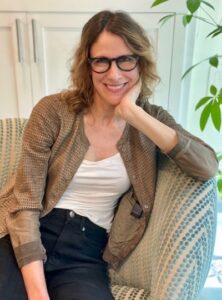
Sarah Schoen, Ph.D. is Faculty, Supervising, and Training Analyst at the William Alanson White Institute, Adjunct Clinical Professor of Psychology at the New York University Postdoctoral Program in Psychotherapy and Psychoanalysis, and Invited Faculty at the Columbia University Center for Psychoanalytic Training and Research. She is on the editorial board of Contemporary Psychoanalysis, and she teaches and writes about contemporary perspectives on gender, narcissism, and the clinical implications of the relational turn. She is co-editor, with J. Petrucelli and N. Snider, of Patriarchy and its Discontents: Psychoanalytic Perspectives (2023). She is in private practice in Manhattan’s Flatiron District.

Vincent Stephen is a clinical psychologist working as a therapist and supervisor at the University Hospital in Tromsø, North Norway. He specializes in psychotherapy for people struggling with complex trauma, dissociation, and serious relational difficulties. Vincent is a candidate at the Norwegian Character Analytical Institute in Olso, a training institution for embodied psychoanalysis. He is interested in the therapeutic use of countertransference and has written on language, embodiment, suicide and authenticity. Vincent is also a multi-disciplinary artist and musician, who has written and performed in various works, including several collaborations with dancer Mirte Bogaert.
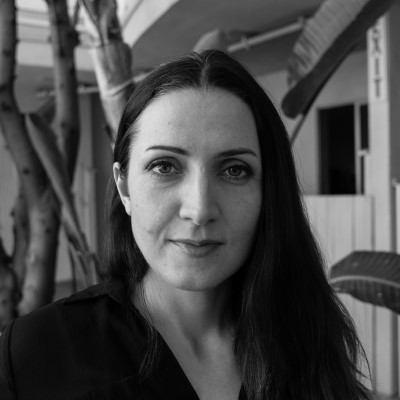
Helena Vissing, PsyD is a Licensed Psychologist certified in Perinatal Mental Health (PMH-C) in private practice in California. She practices psychodynamic and trauma-informed somatic psychotherapy as a Somatic Experiencing Practitioner. Dr. Vissing is experienced as Adjunct faculty at several graduate institutions, including Reiss-Davis Graduate School, Antioch University, and The Chicago School of Professional Psychology. She has published book chapters and articles on the topic of the psychology of motherhood. Dr. Vissing has written a book on her somatic and psychodynamic model for treatment of trauma in the Perinatal Period titled Somatic Maternal Healing: Psychodynamic and Somatic Trauma Treatment for Perinatal Mental Health (Routledge). She has trained at the C.G. Jung Institute of Los Angeles and the Saturday Center for Psychotherapy. She is also host on the New Books in Psychoanalysis podcast and on the editorial board of the International Journal of Body Psychotherapy.
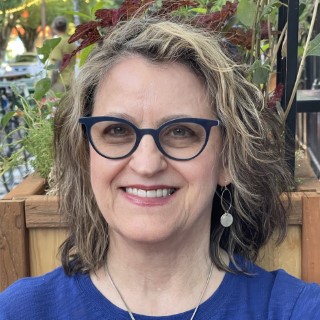
Nancy C. Winters, MD, FIPA is a training and supervising analyst of the Oregon Psychoanalytic Institute and the Northwestern Psychoanalysis Society and Institute, and Clinical Professor of Psychiatry at the Oregon Health and Science University. She serves on editorial boards of the International Journal of Psychoanalysis (IJP) and the Psychoanalytic Quarterly. Recent publications include: co-editor and chapter author of the 2022 Gradiva award-winning Body as Psychoanalytic Object: Clinical Applications from Winnicott to Bion and Beyond (2021), “Autoimmunity and its Expression in the Analytic Situation: Contemporary Reflections on Our Inherent Self-Destructiveness” (IJP, 2022), and “‘A Home to the Lie’: The Contemporary Perversion of Truth” (in press, American Journal of Psychoanalysis). She is in full-time psychoanalytic practice in Portland, OR.
